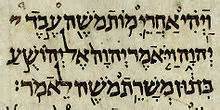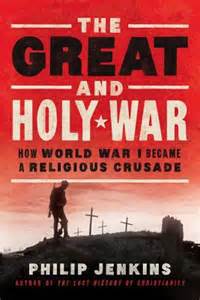
This small hill, to the northwest of the city of Langnau-im-Emmental, in the Canton of Bern, Switzerland, was completely unknown to me as of this past Tuesday. Yet, I've been looking for it for over twenty years, even though I never knew it existed.
I know that my family history is about as exciting to you, as your home movies would be to me. But given the popularity of programs like, "Who Do You Think You Are?" and similar "find your ancestor" programs featuring sports stars, celebrities, and politicians, you may be familiar with the quest being made by many Americans to trace their family history and find their ancestral roots. I've been on mine for over twenty years.
My quest began after my mom died in 1992. I was going through her papers and found a typed funeral text for my paternal great-grandfather, Albert Riddlesbarger. The minister (in the Grace Brethren Church) preached on Philippians 1:21: "to live is Christ, to die is gain." It was a wonderful sermon focusing upon the resurrection. But I had never heard of Albert Riddlesbarger. I did not know that he was born in Illinois in 1857, or that my family had ever lived there. My dad died when I was young, so did my grandfather, so this kind of information was never passed down to me.
It bothered me so much to not know my own family history (there was a family legend that my grandfather Glenn had prepared a family tree but it was now long lost), that I started looking in earnest. I began work on a detailed history of our family for my own sons, and have posted it on-line for any long-lost cousins who might find their way to it (A History of the Riddlebarger Family)
I quickly discovered that my grandfather had started his research back in the 1930's. Along the way I made contact with grandsons of several of the Riddlebargers (in Pennsylvania) with whom my own grandfather had corresponded sixty years earlier. That was wonderful--cousins I never knew I had!
Eventually, I got back as far as "the boat." I can document how the first of my line, Christian Retelsberger, came to America, arriving in Philadelphia in 1733. He was a co-founder and an elder in a Reformed church (in South Carolina) which adhered to the Belgic Confession, the Augsburg 1540, and the First Helvetic Confession (that too was a pleseant surprise). He's also the ancestor of anyone you meet or know named "Riddlebarger," "Riddleberger," "Riddlesberger," or "Riddlespurger" (or any variants therefore). I know that the ship he arrived on--the Pink Mary--left Rotterdam earlier that same year. But there the trail goes cold--the proverbial brick wall. How do you find European ancestors from before 1730, when you are not even sure of the spelling of the surname, and have no clue as to your country of origin, except they were German-speakers?
So, I took a y-DNA test, and actually found a living European cousin from the Rotlisberger family of the Canton of Bern. He and I are an exact match, which means we share a common ancestor somewhere between twelve and fifteen generations ago. I wanted to know more, so I took a more thorough DNA text, and found a link to yet another living Rotlisberger, also in the Canton of Bern.
So, I know that my family name was anglicized from Rotlisberger to Riddlebarger, and that Christian Retelsberger's family originally had come from Bern (probably settling in the Alsace for a generation or two, before he came to America). I also know my haplogroup type is G-P303 (rare for Europeans, and originates in the Levant--maybe I had ancestors among the Ninevites!).
When the possibility arose of a speaking engagement in Europe this fall, I began making tentative plans to visit Langau-im-Emmental, just to get a sense of where my kin once lived. I thought I'd email one of these European cousins to see if he knew of any places I ought to visit. I was about to get the surprise everyone looking for ancestors hopes to get.
He replied several days later--in a matter of fact way--"oh, yeah, there's a hill near Langau named the Rotlisberg, where our family lived. If you come here, I'll take you there." There's a hill in Switzerland for which my family is named? You gotta be kidding me!
The picture above is indeed the "Rotlisberg," and with that "matter of fact" reply, I found the one thing which every American looking for their ancestral roots can only hope to find, their ancestral home. But I never even knew to look for the place because I had no idea such a place existed. I now know where my family lived (before 1500 AD), that I have living European cousins, as well as a new addition to my bucket list.
My quest is finally over. Well, no, not really. Not until, Lord willing, I stand on the Rotlisberg and see it with my own eyes. The hill might not be very big in size, but to me, it is huge!
 Monday, May 4, 2015 at 10:43AM
Monday, May 4, 2015 at 10:43AM Sunday Morning (May 10): We will be considering Ezra 5, and how God sent the prophets Haggai and Zechariah to encourage his people after work on the temple had ceased. Our Lord's Day worship service begins at 10:30 a.m.










